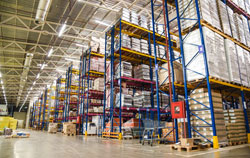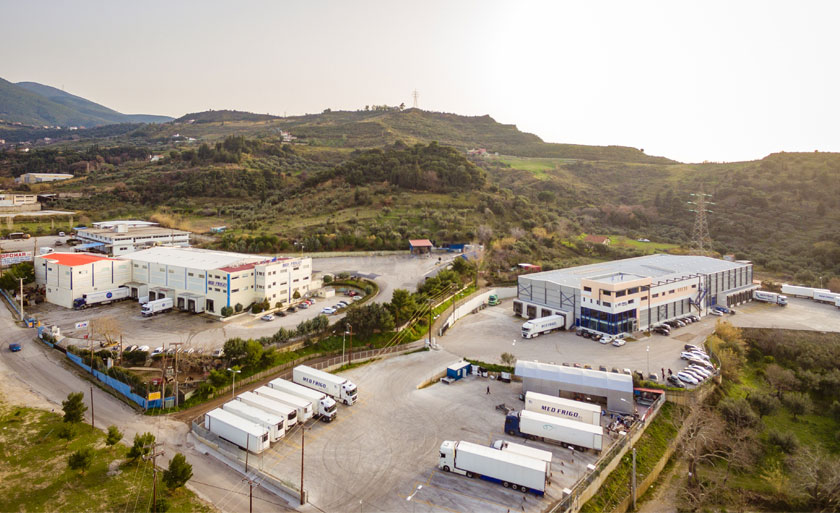
S. Brakatselos, MED FRIGO: Incentives are needed to create larger companies in Transport/Logistics
05/17/2019 - 07:59
Sotiris Brakatselos, the Med Frigo CEO, in an interview with metaforespress.gr, suggested that incentives should be introduced to create larger companies in the transport and logistics sector.
“The fragmentation of the industry does not allow companies with 1-5 vehicles to invest and modernize their infrastructure to become competitive on a national and international level (Euro 6 vehicles, quality systems, international tenders, computer systems, etc.),” notes Mr. Brakatselos, arguing that the State needs to introduce incentives for the creation of larger and more competitive companies.
Regarding Med Frigo’s investment plan and business size, he commented that the company has undertaken two major investments (the logistics center in Igoumenitsa and 16 new trucks), stressing that this year it will focus on investments in new technologies and in applications such as the e-CMR.
Interview with Vaso Vegiazi
- What are your business plans for the current year? Have the investments of the previous years “matured”?
- In 2018, our Group made two major investments. It established the new, state-of-the-art, Logistics center in Igoumenitsa, comprising 2,800 sq.m. of covered refrigerated areas, and Cargo Med bought 16 new EURO 6 VOLVO FH trucks.
The new vehicles will contribute to the homogeneity of the company’s modern fleet, raising the percentage of EURO 6 vehicles to 95% in the privately-owned, 55-vehicle fleet.
For 2019, investments focus on new technologies in infrastructure and systems, aiming to certify MED FRIGO as an AEO (Authorized Economic Operator).
Please note that, for an economic operator to be certified, it must be reliable throughout the EU in terms of the customs operations it carries out and it is, therefore, entitled to enjoy specific benefits throughout the EU, depending on the type of certificate issued.
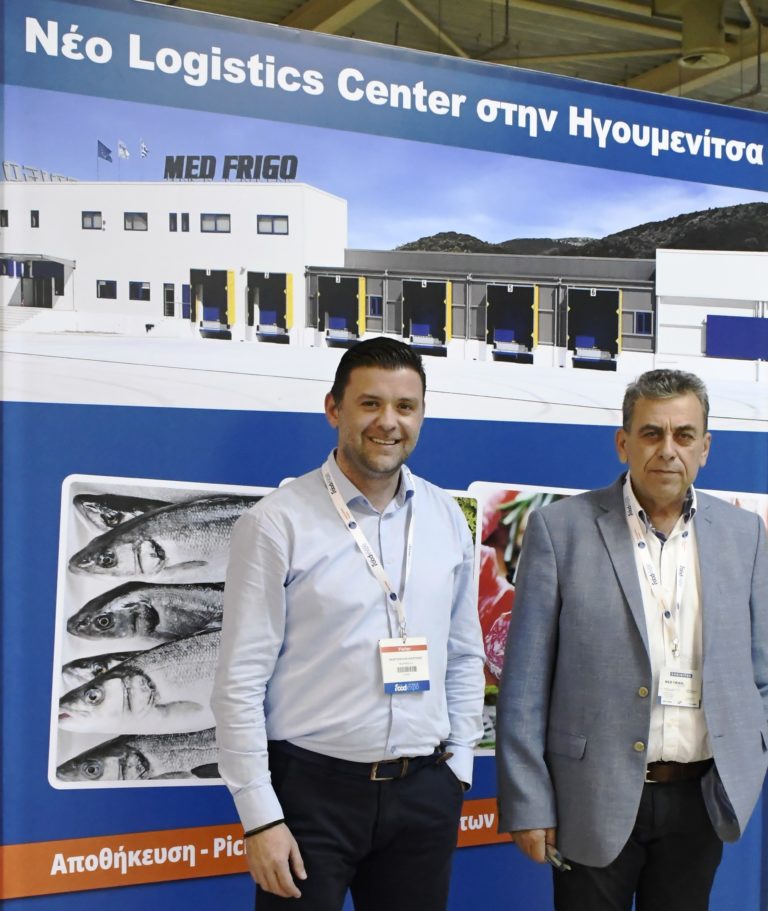
Our investments already resulted in our certification in April, both as AEO and with ISO 27001 for information systems security.
Special emphasis should be placed on the fact that our company has the largest computer and user network in Western Greece, as well as that we were certified as an AEO under the new stricter specifications of 2019.
Of course, we are constantly investing in the training and development of our staff with regard to systems, safety, and road behavior.
- What are the daily obstacles faced by a company operating in the region?
- It is certainly a disadvantage for a company to be far away from the centers of demand and policymaking.
Also, communication with government services and agencies becomes a bit more difficult, since physical presence is often required in order to participate in and implement development projects. The same applies to the promotion and development of works and to participation in sectoral activities, etc.
The possibilities of maintaining, during the summer season, the cold chain for small islands or tourist destinations, which are in essence remote destinations, are extremely limited.
However, as it specializes in the management of sensitive and fast-moving products, the company has counterbalanced this disadvantage by making the strategic choice to be located near the main entrance and exit gates to and from Greece, namely the port of Patras and Igoumenitsa, the second gate that connects us to Europe.
Of course, our branches (platforms) in Aspropyrgos and Thessaloniki are also there to serve our customers.
The recent completion of the highways proves that our choice was justified and clearly facilitates our work.
- ΠWhat are the challenges for a company that specializes in transport services and 3PL refrigeration products?
- First of all, regarding transport, there are certain important issues such as:
Α. Unfair competition caused by the fact that:
- There are companies with registered offices in countries with lower tax rates and control of their activity in our country is insufficient (What do they pay to the state? How is cabotage controlled?).
- Some companies still operating in the country have debts to the state and to insurance funds (continuous debt settlement; possibility to create new companies, which leads to under-priced fares).
- There is a lack of controls to combat unlawful practices (working hours, overweight loads, etc.)
- There is the low depreciation rate of 12%, i.e. a vehicle is depreciated in 8.3 years, while the actual operational readiness is limited to 5 years.
Β. Issues related to the ability to undertake entrepreneurial activities:
- The cost of energy
- The high employee insurance costs
- The overall business environment (over-taxation)
- The inability of the competent bodies (flexibility, speed) (region, municipalities, port funds, etc.) to coordinate and take advantage of investment opportunities.
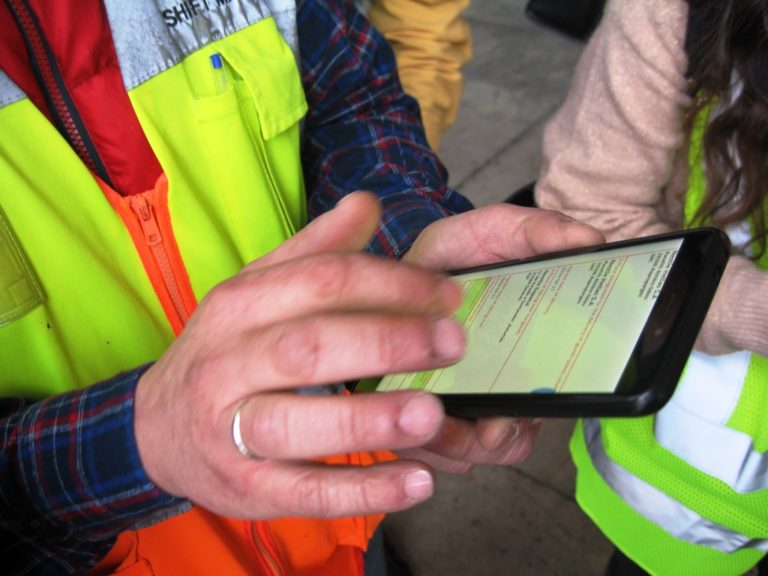
- Please give us an account of Med Frigo’s involvement in the e-CMR program and its potential benefits.
- MED FRIGO, in the framework of the AEOLIX LL12 e-CMR program, led by the IRU (International Road Transport Union), coordinated in Greece by the Hellenic Federation of Road Transports (OFAE), in collaboration with Nestle Hellas, our long-term customer acquired through the know-how we have developed to participate in international electronic tenders, completed on April 12 the first cross-border food shipment from Sevares, Spain, to Aspropyrgos, using digital CMR.
Upon pick up and delivery, a digital signature was placed, accompanied by a timestamp and an indication of the coordinates of the loading-unloading points.
Of course, being the pioneers that we always have been, we have already moved on to the next step, also using the application for our shipments, full and partial, from Greece to Spain, thus carrying out the first export operations to a European destination.
To date, we have completed more than 15 missions, having trained 10 drivers, thus gaining significant experience in both issuing and shipping abroad.
The digitization of CMRs and consignment notes can create immediate and significant benefits for businesses, such as reducing operating costs, eliminating bureaucracy, allowing for greater accuracy and transparency in the flow of information, real-time data exchange, etc.
Although the new highways (Olympia, Ionia, Egnatia) are already in operation, they have not been incorporated in the redesign of the supply chain.
MED FRIGO, anticipating the needs of the international market, has been implementing procedures for completing and issuing CMR forms since 1999 and electronically through an accounting application since 2003.
Therefore, our participation aims to shape the implementation framework at a pan-European level together with the other stakeholders. Our company issues and manages over 100,000 CMRs every year.
With this pilot application, Greece (through MED FRIGO) has achieved significant success at a pan-European level and has become one of the first countries to reap the benefits of digitizing transport documents in cross-border transport.
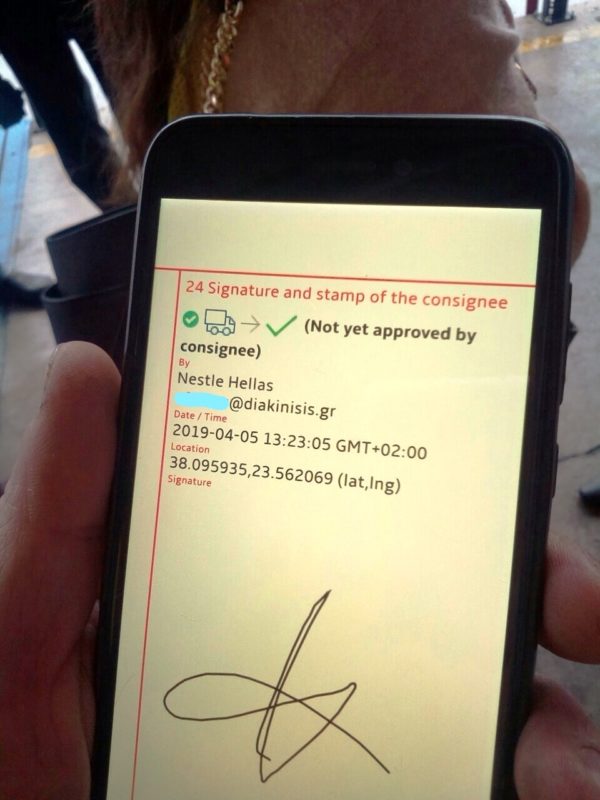
- What do you think is the future of the Greek supply chain and transport market?
- The fragmentation of the industry does not allow companies with 1-5 vehicles to invest and modernize their infrastructure to become competitive on a national and international level (Euro 6 vehicles, quality systems, international tenders, computer systems, etc.).
For the transport industry to have a future, targeted incentives must be elaborated and provided to create larger companies or groups with modern vehicles or to repatriate the fleets.
In this way, they will meet the market demands in the entire spectrum of the transport industry, from distribution in big city centers to cross-border transport.
And, of course, given the development of tourism, we will have to redesign the network and infrastructure taking into account the islands and the rest of the region.
It is well known, for example, that the possibilities of maintaining, in the summer, the cold chain for small islands or tourist destinations, which are in essence remote destinations, are extremely limited.
An additional remark to be made is that, although the new highways (Olympia, Ionia, Egnatia) are already in operation, they have not been incorporated in the redesign of the supply chain. Some new combinations and possibilities can improve times and costs, although tolls are now an important part of transportation costs.
Please note that MED FRIGO has 5 modern, fully-equipped logistics centers occupying 51,500 sq.m. of privately-owned premises, comprising temperature-controlled areas of 15,500 sq.m., 45 loading and unloading ramps, and a fleet of 200 privately-owned and cooperating mounted refrigerator trucks.

